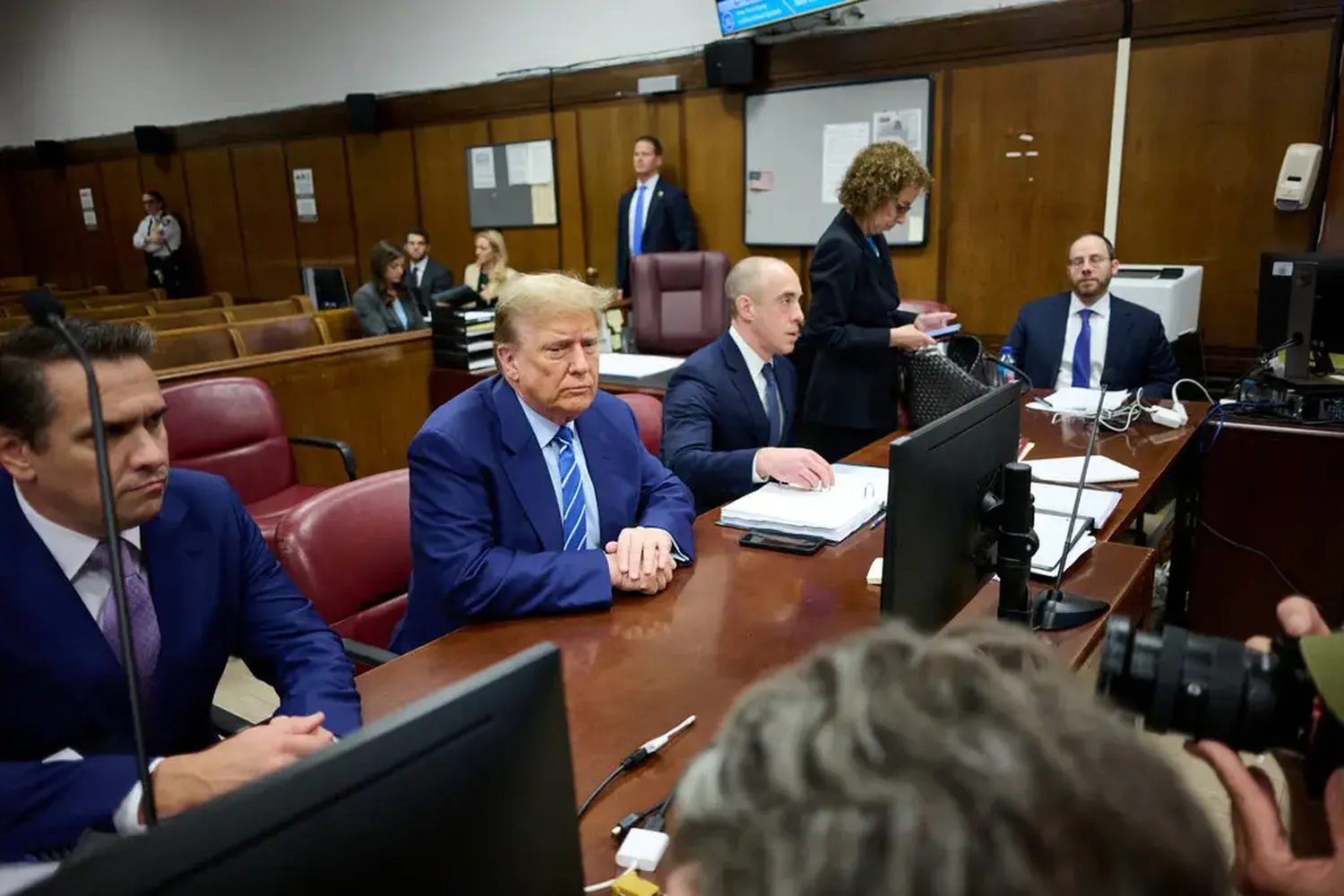NY Trial
Trump Hush Money Trial Underway as 7 Jurors Seated, Proceedings Adjourned Until Thursday
In a significant development in the ongoing criminal trial of former President Donald J. Trump, seven jurors have been seated as the trial adjourns until Thursday. The trial, which is taking place in New York, marks the first time in American history that a former president has faced criminal charges. The charges stem from allegations that Trump falsified business records to conceal a hush money payment made to adult film actress Stormy Daniels during the 2016 presidential campaign.
The jury selection process began on Monday and continued into Tuesday, with over 100 potential jurors summoned to the Manhattan courtroom. The task of selecting an impartial jury has proven to be a complex endeavor, given the high-profile nature of the defendant and the political implications of the case. More than half of the initial pool of jurors expressed concerns about their ability to remain impartial, leading to their dismissal.
The seven jurors who have been selected represent a diverse cross-section of New York City residents. Their backgrounds range from an oncology nurse to a software engineer, reflecting the city's multifaceted demographic. The jurors were chosen after undergoing a rigorous vetting process, which included a 42-question form probing their political affiliations and opinions about Trump.
The trial is presided over by Judge Juan Merchan, who has emphasized the importance of selecting a fair and impartial jury. The judge has also made it clear that Trump is required to attend the trial proceedings, denying requests from Trump's legal team for the former president to be excused on certain dates due to personal and political commitments.
Trump's legal team, led by attorney Todd Blanche, has been vocal in their criticism of the trial, labeling it a politically motivated attack. They have also made multiple attempts to have the trial postponed and the judge recused, all of which have been denied. The defense argues that the payments to Michael Cohen, Trump's former lawyer, were legitimate legal expenses and not part of any cover-up.
The prosecution, on the other hand, contends that the payments were made to prevent damaging stories from surfacing during Trump's campaign and that they were falsely recorded as legal expenses. The Manhattan District Attorney's office has charged Trump with 34 felony counts of falsifying business records, which could carry a sentence of up to four years in prison if he is found guilty.
The trial is expected to last between six and eight weeks, with the entire process being closely followed by the media and the public. The case has garnered significant attention, not only because of the defendant's status as a former president but also due to its potential impact on Trump's political future.
As the trial adjourns until Thursday, the legal teams will continue their efforts to seat the remaining jurors. The next phase of the trial will involve opening statements and the presentation of evidence, which will provide further insight into the details of the case.
The trial's outcome is uncertain, and its implications are far-reaching. It is a historic moment in American jurisprudence, as the nation watches a former president stand trial in a criminal court. The proceedings are a testament to the principle that no one is above the law, and they underscore the importance of the judicial system in upholding accountability, regardless of an individual's status or political influence.
As the trial progresses, the world will be watching to see how justice is served in a case that could set a precedent for the treatment of former presidents and other high-ranking officials in the legal system. The trial's conclusion, whether it results in a conviction or acquittal, will undoubtedly have a lasting impact on the American political landscape and the rule of law.

